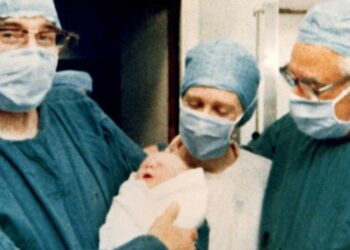Having a dry mouth is something most of us experience once in a while. Often, the causes are a few too many beers, dehydration or sleeping with our mouths open. Unfortunately, some people experience chronic dry mouth problems which can impact their daily lives and have some serious physical effects.
Dry mouth syndrome can also cause problems eating, speaking in public and generally in social situations. The current research suggests that up to 40% of people over 55 experience regular dry mouth issues. If you have problems with your oral health then read on to find out how dry mouth manifests, some facts and some tips for dealing with it.
Information about dry mouth
Dry mouth is also known as xerostomia and is caused by the flow of your saliva being affected. Saliva is vital to keeping your mouth well lubricated and also helps to neutralise acids in your mouth, clean your mouth, fight tooth decay and generally maintain oral health. Having a dry mouth can also impact the way food tastes and make it hard to process dry foods. Having a dry mouth can affect speech and also because of bad breath.
When is it worse?
Dry mouth tends to be worse at night because the mouth naturally produces less saliva. It is also more prevalent amongst people in old age and can be an effect of certain medications such as blood pressure, depression and heart tablets. If you are wondering why your dry mouth is worse at certain times then it’s a good idea to talk to your pharmacist, doctor and dental team. In very specific cases, dry mouth can be a result of a medical situation such as lupus, diabetes, blocked salivary glands or Sjogren’s syndrome.
Effects of dry mouth
Studies suggest that people with dry mouth may be more at risk of mental health problems and particularly sexual anxiety. There can also be serious issues with oral health including, not just bad breath, but also the erosion of enamel, tooth decay and losing teeth.
Tips to combat dry mouth
If you have had problems with dry mouth for a while then you may need some dental work. The situation will depend on the quality of your teeth, and if you haven’t been to the dentist since you got your wisdom teeth out many years ago then it’s quite likely then you need some serious preparative work on your teeth. Visit your dental team regularly if you have dry mouth, so they can keep advising you and providing you with the products that are best for you.
A floyd toothpaste with a minimum of 1350 to 1500 ppm of fluoride will be a must. Watch out for products that include sodium Lauryl sulphate, as this can irritate people with dry mouths. There are quite a few products on the market that help you to keep your mouth moist. It normally comes in the form of sprays or gels. Some also include gradients to help to treat or prevent gum and tooth problems. Make oral hygiene products a part of your day-to-day hygiene schedule.
You might also want to encourage saliva by chewing sugar-free gum, and your dentist may recommend lozenges, pastes, rinses or gels. Sucking sugar-free sweets and sipping water can also help to stimulate saliva and keep your mouth moist. Dry mouth is a serious personal problem that affects a lot of people. The first thing you need to do is find out if there are any medical reasons for you having dry mouth, and then you need to tackle the cause or alleviate the symptoms by creating more moisture in your mouth.
Make sure that you deal with any dental consequences you have suffered so that you don’t end up with a decreased level of confidence and a lower level of well-being. If the situation is far gone and you have to have some teeth like your wisdom teeth pulled, ensure your wisdom teeth removal procedure is done properly.


































































































































































































